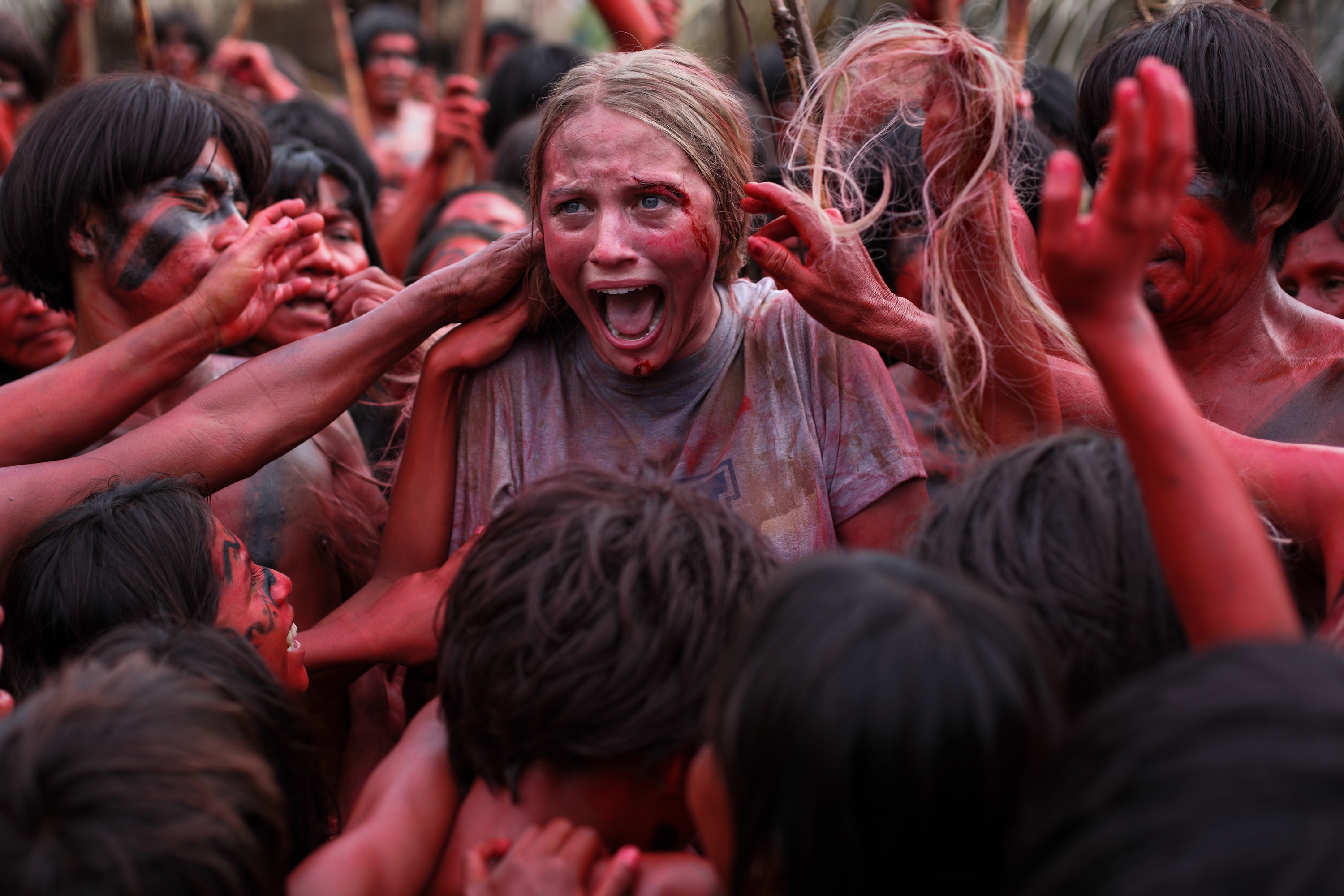
Nordling here.
In horror, context is everything. Context is what keeps the genre respectable; well, respectable as it can be to those who aren't genre fans. But more importantly, it gives the genre meaning and resonance. A film like THE EXORCIST isn't terrifying because of the effects or the subject matter, although those play huge roles. It's terrifying because the film has quite a bit to say about what it means to be a parent, about adolescence and how confusing a time it is, and about finding faith in a world that has seemingly abandoned you. The best horror touches on something intrinsic and universal, and while not every horror movie has to make a Big Statement, it helps that films in this genre have underlying meaning.
That's why I supported (and still do) Eli Roth's HOSTEL. It's made more frightening by its themes - of American imperialism and the arrogance that Americans can be guilty of from time to time. It's also effectively scary, but also very relatable. It's easy to put yourself into HOSTEL. In THE GREEN INFERNO, Roth also attempts to add some thematic weight to the goings-on - about slacktivism, the tendency for Westerners to want to "fix" things without a true understanding of the commitment it takes, and the damage they can inflict. It's unfortunate that Roth abandons those themes during the course of the movie to simply put on a gore show. Now, I can appreciate good gore as much as anyone, but I need to care about who gets put in the grinder. Roth tries to make us care about these people, but sadly fails to make us care for most everyone except the lead character.
Justine (Lorenza Izzo, the best performance in the movie) is a college freshman who wants to make her mark in the world. Her school is full of protest groups, and she wants to be active. She has a calling to help others, something that she likely got from her father, who works at the United Nations. She finds herself intrigued by Alejandro (Ariel Levy), an activist for the Amazon rainforest, who is trying to stop one particular piece of Peruvian jungle from being demolished.
Against the wishes of friends and family, Justine finds herself among other activist students in South America, chained to a tree to stop the bulldozers from doing more damage. It's on the way back home that the engine in their airplane fails, and after a brutal crash, the suvivors are taken by a local tribe. They are all cannibals, and Justine and the other students must use every means at their disposal to escape before they become the main course.
THE GREEN INFERNO is the kind of film that people point to when describing the genre as gratuitous. Its parts are greater than the whole; some of the performances are good (and some are painfully bad, including Levy as Alejandro, who hams it up to the point that the cannibals could have eaten his performance instead of the other characters), the score is wonderful, and Greg Nicotero and his team do their usual great work. The digital photography was a problem; shooting in the jungle, relying on the natural light, has always been a consistent difficulty for digital cameras. But it has a nice scope for all that; the colors are lush and the setting unique enough that visually THE GREEN INFERNO looks really good most of the time. It's when it comes down to the story and Roth's direction that the problems arise.
Look, I have no issues with exploitation cinema. The original CANNIBAL HOLOCAUST feels forbidden and filthy, as it's supposed to. The unsavory nature of the film adds to the mystique and the feeling of foreboding. THE GREEN INFERNO, by contrast, is a glossy production, and instead of making the film more subversive, the proceedings become dull and repetitive. As people get cut up and eaten, the whole endeavor gives off the feeling of been-there-done-that, which is surprising because Roth, to me, still has the ability to surprise and shock. I never got the feeling from the HOSTEL films (well, the first more than the second, certainly) that Roth was attempting to provoke just to piss audiences off. Again, there's a theme in HOSTEL and a method to Eoth's madness. But in THE GREEN INFERNO Roth abandons thematic resonance and simply goes for the gross-out. It's such an overload of gore, without any subtlety, that the mind simply ceases to be offended and it all becomes routine. It's the director's job to give his film meaning, and in THE GREEN INFERNO it's difficult to see any point. When you can see the strings, and the filmmaker's overeagerness to offend and to shock, the manipulation becomes crass and obvious, and it took me straight out of the movie.
In talking to other audience members after the screening, I think for a few people the film had the desired effect; there's one particular plot point in the film about female genital mutilation, and you just know where that's headed, and by rights I should probably be offended. But THE GREEN INFERNO commits a greater offense than that (although the righteously indignant may find a lot to get righteous about, and more power to them). Simply put, the greatest offense THE GREEN INFERNO commits is that it's boring.
Nordling, out.
